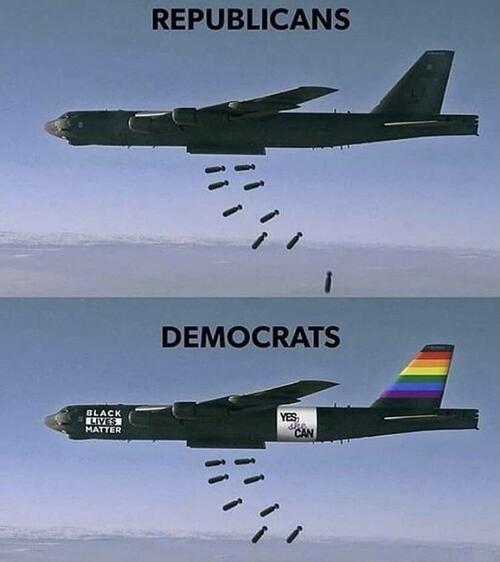
The Pentagon needs to rapidly increase munitions purchases if they want to be prepared for a shooting war with Russia and/or China after depleting stockpiles due to large transfers to Ukraine.
Since the start of the war, the US has transferred 806,000 shells of 155mm howitzers and 108,000 shells for 105mm guns, according to the Defense Department figures. That's nearly one million shells in six months, and the figure does not factor in missiles and other precision-guided rockets.
As of June, Ukrainian forces fired about 6,000 shells per day at Russian forces. Artillery in warfare is very important, but there's no way Ukraine can manufacture such shells at scale, so the US is quickly burning through its ammunition stockpile.
#Ukraine: Ukrainian artillerymen firing two US-supplied M982 Excalibur 155mm guided extended-range projectiles (made in 2011) from a M777A2 howitzer.
— 🇺🇦 Ukraine Weapons Tracker (@UAWeapons) September 7, 2022
We can also see the projectiles being programmed using the Enhanced Portable Inductive Artillery Fuze Setter (EPIAFS). pic.twitter.com/0sPXZ1nubI
#Ukraine: One of the earliest visual confirmations of 🇺🇸 M982 Excalibur 155mm guided extended-range projectiles in use with the Ukrainian army - here we can see a Ukrainian M777A2 firing at least 3 of them recently.
— 🇺🇦 Ukraine Weapons Tracker (@UAWeapons) September 3, 2022
The projectiles can be IDed by the very distinctive case. pic.twitter.com/69x95zXduS
US defense officials told WSJ that stockpiles of 155mm shells are "uncomfortably low" after months and months of arming Ukraine.
The Pentagon has been slow to replenish its arsenal and may jeopardize readiness for a broader conflict with top superpowers, such as Russia and China.
That's why Secretary of Defense for Acquisition and Sustainment William LaPlante revealed Friday that the US plans to increase the production capacity of 155mm ammunition from 14,000 to 36,000 shells per month over the next three years.
"Right now, the 155 [mm] munitions are [produced] at about 14,400 a month, and we have plans working with the contractor to get that in increments ultimately up to 36,000 a month by about three years. It's going to be in steps," LaPlante said during a press conference.
The Army has requested lawmakers on Capitol Hill for an extra $500 million a year in upgrade efforts for ammunition plants, WSJ said, quoting defense officials.
Earlier this week, Secretary of State Antony Blinken announced another $2 billion in military weapons for Ukraine, putting the total dollar amount American taxpayers have shelled out for the war at approximately $15 billion under the Biden administration.
A looming ammunition shortage emerges as the Biden administration has become the military-industrial complex's best 'salesperson' (to be politically correct). Biden's weapon deals with Ukraine are so hot that the US is also "running low" on anti-tank missiles.
Congrats to Biden and the Democrats for empowering the military-industrial complex and arming one of the world's most corrupt countries as billions of US taxpayers' dollars slide into a black hole in Eastern Europe.
The Pentagon needs to rapidly increase munitions purchases if they want to be prepared for a shooting war with Russia and/or China after depleting stockpiles due to large transfers to Ukraine.
Since the start of the war, the US has transferred 806,000 shells of 155mm howitzers and 108,000 shells for 105mm guns, according to the Defense Department figures. That’s nearly one million shells in six months, and the figure does not factor in missiles and other precision-guided rockets.
As of June, Ukrainian forces fired about 6,000 shells per day at Russian forces. Artillery in warfare is very important, but there’s no way Ukraine can manufacture such shells at scale, so the US is quickly burning through its ammunition stockpile.
#Ukraine: Ukrainian artillerymen firing two US-supplied M982 Excalibur 155mm guided extended-range projectiles (made in 2011) from a M777A2 howitzer.
We can also see the projectiles being programmed using the Enhanced Portable Inductive Artillery Fuze Setter (EPIAFS). pic.twitter.com/0sPXZ1nubI— 🇺🇦 Ukraine Weapons Tracker (@UAWeapons) September 7, 2022
#Ukraine: One of the earliest visual confirmations of 🇺🇸 M982 Excalibur 155mm guided extended-range projectiles in use with the Ukrainian army – here we can see a Ukrainian M777A2 firing at least 3 of them recently.
The projectiles can be IDed by the very distinctive case. pic.twitter.com/69x95zXduS
— 🇺🇦 Ukraine Weapons Tracker (@UAWeapons) September 3, 2022
US defense officials told WSJ that stockpiles of 155mm shells are “uncomfortably low” after months and months of arming Ukraine.
The Pentagon has been slow to replenish its arsenal and may jeopardize readiness for a broader conflict with top superpowers, such as Russia and China.
That’s why Secretary of Defense for Acquisition and Sustainment William LaPlante revealed Friday that the US plans to increase the production capacity of 155mm ammunition from 14,000 to 36,000 shells per month over the next three years.
“Right now, the 155 [mm] munitions are [produced] at about 14,400 a month, and we have plans working with the contractor to get that in increments ultimately up to 36,000 a month by about three years. It’s going to be in steps,” LaPlante said during a press conference.
The Army has requested lawmakers on Capitol Hill for an extra $500 million a year in upgrade efforts for ammunition plants, WSJ said, quoting defense officials.
Earlier this week, Secretary of State Antony Blinken announced another $2 billion in military weapons for Ukraine, putting the total dollar amount American taxpayers have shelled out for the war at approximately $15 billion under the Biden administration.
A looming ammunition shortage emerges as the Biden administration has become the military-industrial complex’s best ‘salesperson’ (to be politically correct). Biden’s weapon deals with Ukraine are so hot that the US is also “running low” on anti-tank missiles.
Congrats to Biden and the Democrats for empowering the military-industrial complex and arming one of the world’s most corrupt countries as billions of US taxpayers’ dollars slide into a black hole in Eastern Europe.







